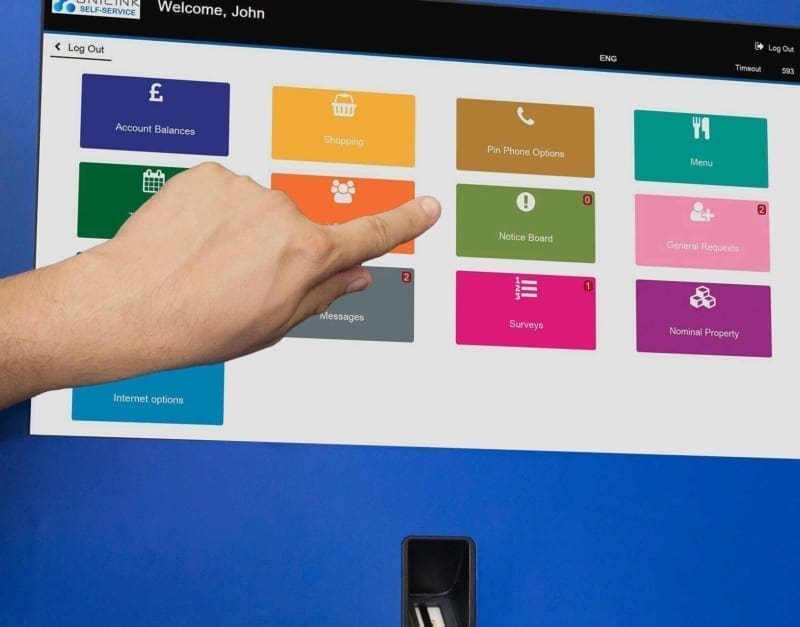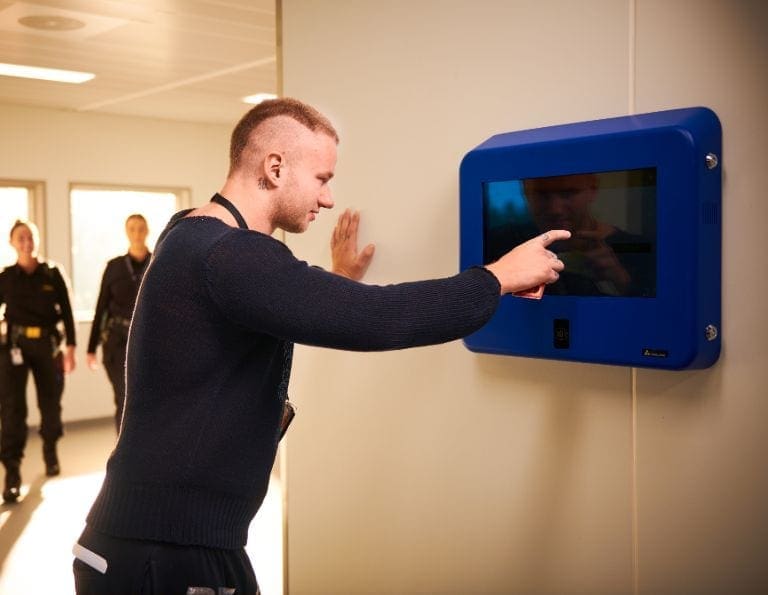Striking and commendable downturn in recidivism rates. This is what 10BY20 Report by The Department for Correctional Services (DCS), Government of South Australia unveils.
The target to reduce reoffending 10% by 2020, originally committed to in 2016, has not only been met but also exceeded. “Crucial to the strategy has been utilising evidence-based programs to ensure best practice and proven to be effective by conducting formal evaluations. DCS seek holistic outcomes for people involved in the criminal justice system, victims, the community and government”, declares David Brown, Chief Executive, DCS.
In 2016, the State Government announced the Reducing Reoffending: 10% by 2020 strategy to address high rates of reoffending and to support safer communities. The reoffending rate of 46.1% was used as a baseline measure, which had a target of a 10% reduction in reoffending to 41.4%.
That same year – 2016 the Kiosk Express System (KEX), Unilink’s Prisoner Self-Service was launched across all DCS’ facilities enabling prisoners to become self-sufficient in submitting requests and obtaining information via the use of electronic “kiosks”.
The solution came as a response to the challenge faced by DCS – to manage offenders in a safe, secure and humane environment and provide opportunities for rehabilitation and reintegration.
David Brown, Chief Executive of the Department for Correctional Services said, “The opportunity to introduce self-service kiosks for prisoners in our facilities really came about as a result of the need to find efficiency and effectiveness improvements in our system, to free up staff time to be engaged in more meaningful interactions and contact with offenders, whether that be about getting them to work, having them engaged in programmes or dealing with their case management needs, and providing the prisoners greater control over their day-to-day living requirements. We want to do away with those paper-based systems that are often a cause of great frustration not only for prisoners but also for staff in the agency. And as we introduce the technology, I think what it demonstrates to the prisoner population but more importantly to the staff across the prison system, is how technology can be used to aid and enhance the prison environment”.
Over 3 000 prisoners are using the system at 8 correctional facilities.
Prisoners in Southern Australia can use the Self-Service kiosks to:
- Order canteen and property items
- Transfer money to their phone account
- View their account balances and transactions
- Lodge requests
- View meals available
- View visit bookings
- View information published by the department
- Self-refer themselves to the Prison Health Service
Carol Zulian, Project Manager for the Kiosk Express System at the Department of Correctional Services said: “This technology aligns prisoners with the normalisation of current IT systems in society, especially for those prisoners serving long term sentences, some who may have never experienced using an ATM.”
While the 10BY20 report does not explicitly attribute this noteworthy reduction to the utilization of self-service mechanisms by offenders, the correlation becomes increasingly apparent when compared with findings from the United Kingdom. Remarkably consistent with the outcomes documented in the academic research done by the Universities of York and Portsmouth, these parallel trends suggest a discernible pattern that merits careful consideration. This unprecedented decline in recidivism not only underscores the effectiveness of certain prison initiatives but also raises intriguing questions about the potential role of self-service in the broader context of offender rehabilitation.
Independent research into the effectiveness of Self-Service
Professor Cynthia McDougall OBE of the University of York and Dr Dominic Pearson of Portsmouth University completed the world’s first academic research into the effect of Unilink’s Prisoner Self-Service technology in 2017, looking specifically at the impact of introducing kiosks and in-cell devices in custodial environments for both prisoners and prison staff. The research findings show that there are many positive impacts in introducing this technology:
- 94% increase in completions of Offending Behaviour Programmes
- A statistically significant reduction in adjudications
- A 4% reduction in reoffending
- A 12% reduction in staff sickness
- Statistically significant savings in staff time
- 93% agree the system is easy to use
- Offenders taking responsibility for finances and other processes rather than asking staff
- Purchase of fruit from the canteen increased by over 50% following the introduction of the system
- The ability to use technology to contact an external supervisor (such as an offender manager), together with assistance finding accommodation and employment after release, significantly improved prisoner wellbeing and mental health
The research has shown that empowering prisoners with Self Service produces a range of benefits both for the prisoner and the prison staff. The key benefit being the rehabilitative effect on the prisoner, helping to reduce the massive financial burden of reoffending. For the prison staff, it is a way to significantly reduce hours spent on administrative work, freeing them to spend more time working directly with prisoners building more meaningful relationships.
David Brown, Chief Executive of the Department for Correctional Services said, “This is an example of how technology has delivered a benefit, but we’re now exploring opportunities to network prisoner education and vocational training across the correctional system and to present opportunities to link with external education providers as part of that program of transformation”.
10BY20 Report demonstrates that DCS not just achieved but exceeded the 10by20 target. Currently SA’s reoffending rate is 39.3% (Report on Government Services 2022), which represents a 15% reduction in recidivism against the baseline of 46.1%. This is the lowest recidivism rate in the country and well below the national average of 53.1%.
Unilink is proud to play a part in this success and will keep supporting DCS in achieving the goals of 20by26 Strategy.
Share








